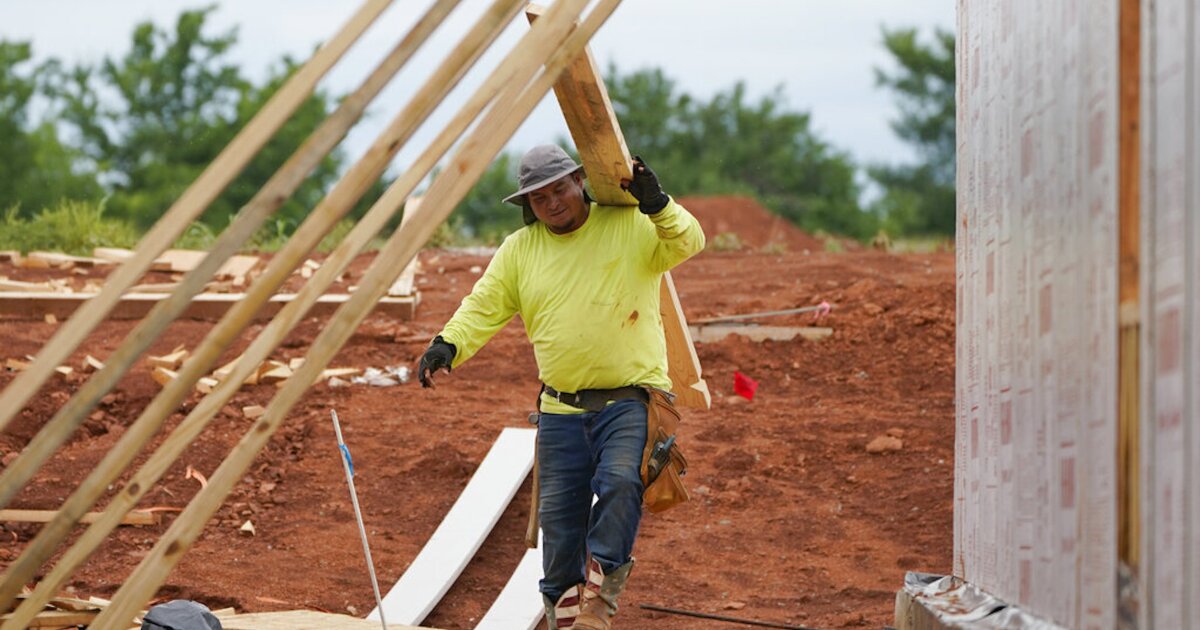

The number of housing starts tumbled in March, an indication that the housing market is taking a hit and may be falling into a recession.
Housing starts measure the change in the number of new residential buildings that began construction. Starts fell 17.2% from March 2022 to this past month, according to a Tuesday report from the Census Bureau. They are now at 1.42 million. From February to March, they fell 0.8%.
Additionally, permits to build, which are seen as a proxy for future construction, decreased/increased by 8.8% in March.
“We expect choppiness for single-family construction in the months ahead, with the 2023 data posting significant year-over-year weakness before improving on a sustained basis,” said National Association of Home Builders chief economist Robert Dietz. “The multifamily market softened in March, and we anticipate ongoing declines for apartment construction in the months ahead due to tighter lending conditions in the commercial real estate sector.”
FLORIDA DEFIES NATIONAL HOUSING ‘RECESSION’ WITH POST-PANDEMIC BOOM
Tuesday’s report comes as the Federal Reserve’s campaign to slow spending across the economy by hiking interest rates has taken a major toll on the national housing market.
The rate on the average 30-year fixed-rate mortgage soared from just over 3% at the start of 2022 to over 7% in November. It has since drifted down following the collapse of Silicon Valley Bank to 6.27%.
In other housing news, sales of new homes increased slightly from January to February, a sign that buyers might be reentering the market amid lower mortgage rates, according to data released late last month by the Census Bureau.
CLICK HERE TO READ MORE FROM THE WASHINGTON EXAMINER
New home sales in February increased from the month before, rising 1.1% last month to a seasonally adjusted annual rate of 640,000. Nevertheless, sales were 19% lower than in February 2022.
The Fed once again hiked interest rates last month by a modest quarter of a percentage point, even despite the uncertainty from the collapses of SVB and Signature Bank. That ultimately means more pressure on mortgage rates this year.





